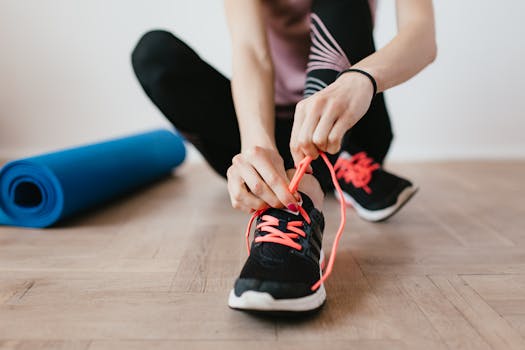Unlocking Happiness: The Mental Health Benefits of Regular Physical Activity
Takeaways: Regular physical activity is not just about keeping fit; it’s a powerful tool for enhancing mental health. Exercise helps reduce stress, anxiety, and depression while boosting self-esteem and cognitive function. Whether it’s a brisk walk, a dance class, or weightlifting, find what makes you feel good and get moving!
Hey there! If you’re anything like me, the thought of hitting the gym can feel like a chore sometimes. But what if I told you that regular physical activity could be your secret weapon against stress and anxiety? Seriously! Let’s dive into how moving your body can work wonders for your mental health.
1. The Mood-Boosting Power of Exercise
Have you ever noticed how you feel after a good workout? That post-exercise high is no accident. When you engage in physical activity, your body releases endorphins, those lovely little chemicals that act as natural mood lifters. I remember the first time I went for a run after a particularly tough week. I was surprised at how my mood shifted from gloomy to euphoric within minutes. It’s like my worries melted away with each step!
Studies have shown that regular exercise can be as effective as medication for some people with depression and anxiety. It’s like having a built-in therapist that travels with you! So, whether it’s hitting the gym, dancing in your living room, or going for a hike, find something that gets your heart pumping.
2. Stress Relief – Bye-Bye, Tension!
We all have those days where stress feels like it’s piling up higher than a mountain. For me, a quick workout is often the best remedy. Engaging in physical activity helps lower the body’s stress hormones, like cortisol, while simultaneously stimulating the production of endorphins. It’s a win-win! I’ve found that even a short 20-minute session of yoga or a brisk walk can clear my mind and help me face the day with renewed energy.
Plus, getting into a workout routine gives you a sense of control and accomplishment. You set a goal, you achieve it, and that boosts your self-esteem. Every time I check off a workout from my list, I feel like I’ve conquered the world – at least my little corner of it!
3. Enhanced Sleep Quality
If you’re struggling with insomnia or restless nights, exercise might be the answer. I used to toss and turn, unable to shut off my brain after a long day. But once I started a regular exercise routine, my sleep improved dramatically. Physical activity helps regulate your sleep patterns and increases the amount of time you spend in deep sleep, which is crucial for mental health.
Just make sure you’re not working out too close to bedtime; that can actually keep you awake! Aim for morning or afternoon sessions instead. Trust me, waking up refreshed is a game changer!
4. Building a Supportive Community
One of the best parts about getting active is the chance to meet new people. Whether you join a local gym, a running club, or a dance class, you’re opening the door to a community of support. I’ve made some of my closest friends through fitness classes, and having that social interaction is crucial for mental health.
Being part of a group gives you accountability, encouragement, and a sense of belonging. Plus, you get to celebrate each other’s victories, big and small! It’s like having a built-in cheer squad, and who doesn’t love that?
5. Cognitive Function and Brain Health
Exercise isn’t just good for your body; it’s fantastic for your brain too! Regular physical activity increases blood flow to the brain, which can enhance cognitive functions like memory and thinking skills. I’ve noticed that after a workout, I’m sharper and more focused, which is especially helpful when I’m working on creative projects or tackling a tough problem.
So, if you’re looking to boost your brainpower, lace up those sneakers! It’s an investment in your mental clarity and overall well-being.
FAQs
How much exercise do I need for mental health benefits?

What types of exercise are best for mental health?
Any form of exercise is good, but activities that you enjoy will be the most beneficial! This can include walking, running, biking, dancing, or even yoga. The key is to get moving!
Can I exercise if I’m feeling depressed or anxious?
Yes! Exercise can be a great tool for managing symptoms of depression and anxiety. Start small, listen to your body, and seek professional help if needed.
Is it better to exercise alone or with others for mental health benefits?
Both have their advantages! Exercising alone can be meditative, while group activities can provide social support. Find what works best for you!
How can I stay motivated to exercise regularly?
Set realistic goals, track your progress, and reward yourself for your achievements. Find activities you enjoy, and consider working out with friends to keep things fun!






